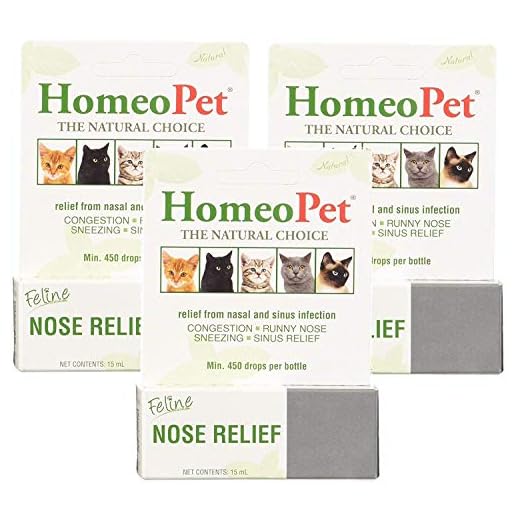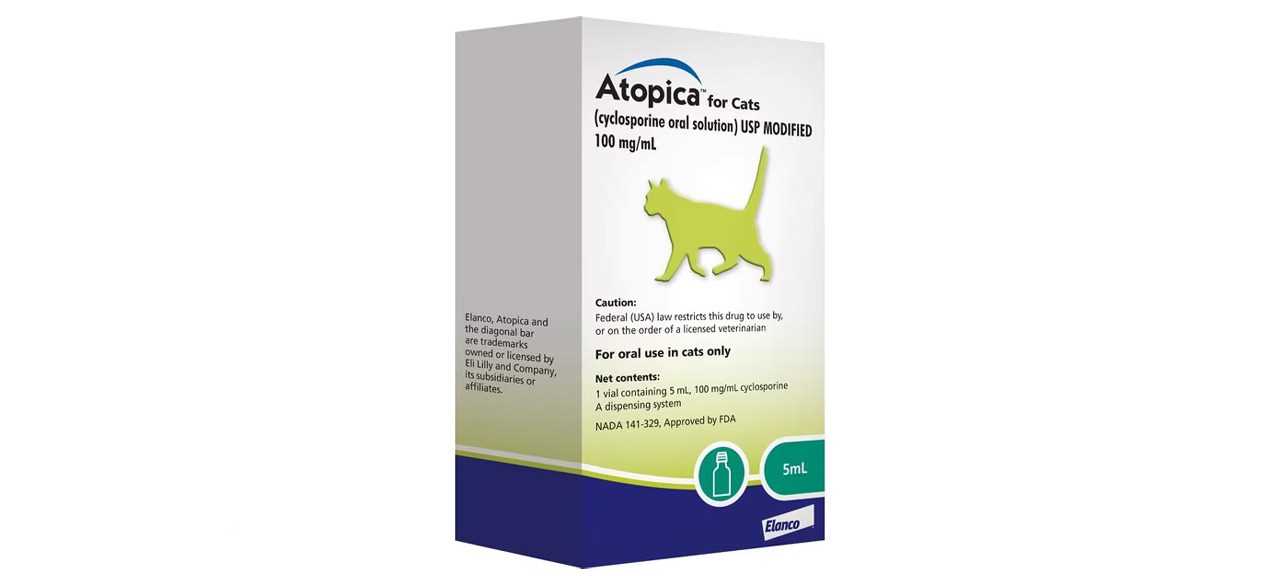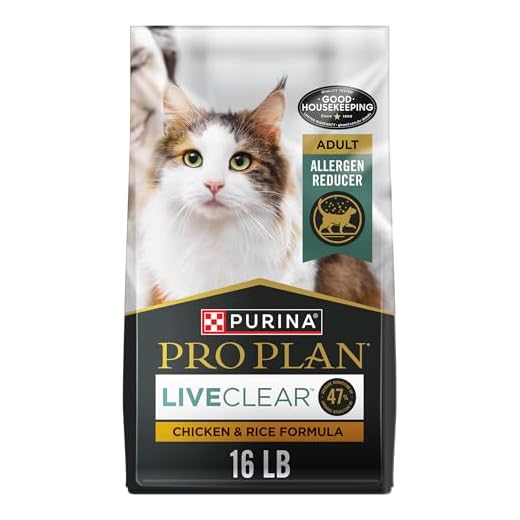




If your feline companion is suffering from irritating reactions, knowing the right treatments can make a significant difference. This article provides insights into various solutions available to alleviate discomfort caused by sensitivities, ensuring your pet can enjoy a happier, healthier life.
Pet owners, veterinarians, and animal caregivers will find this information particularly useful. Understanding the options can help you make informed decisions regarding your cat’s health and well-being.
In this piece, we explore various types of treatments such as antihistamines, corticosteroids, and alternative remedies. Each section delves into the pros and cons, recommended dosages, and precautions to consider. By the end, you will have a clearer picture of how to manage your pet’s symptoms effectively.
Best Allergy Solutions for Felines
Choosing the right approach for managing sensitivities in felines requires understanding the underlying issues and available treatments. Various options exist, each with unique benefits tailored to specific symptoms.
Consultation with a veterinarian is crucial to determine the most suitable treatment. They can provide guidance on the best course of action, including potential dietary changes, environmental modifications, and medical therapies.
Common Treatments
Several approaches can alleviate the discomfort caused by sensitivities. These may include:
- Antihistamines: Often prescribed to reduce itching and inflammation.
- Steroids: Useful for controlling severe reactions and inflammation.
- Immunotherapy: A long-term solution that helps build tolerance to specific allergens.
- Topical Treatments: Creams or sprays can provide localized relief from itching and irritation.
- Dietary Adjustments: Switching to hypoallergenic food can sometimes resolve digestive issues related to sensitivities.
Regular monitoring and adjustments may be necessary to ensure the chosen method remains effective. Some felines may respond better to certain treatments than others, highlighting the need for tailored approaches.
In addition, maintaining a clean environment by reducing dust, pollen, and other potential irritants can complement any treatment plan. Regular grooming and bathing can also help minimize exposure to allergens.
Understanding Common Allergies in Cats
Identifying sensitivities in felines is crucial for their well-being. Common irritants include environmental factors, food components, and parasites, each prompting distinct reactions. Observing symptoms like itching, sneezing, or gastrointestinal distress can aid in pinpointing the source of discomfort.
Environmental triggers often comprise pollen, dust mites, mold, and specific plants. Seasonal changes can exacerbate these reactions, leading to increased scratching or respiratory issues. Food-related sensitivities may arise from ingredients such as beef, dairy, or grains, necessitating dietary adjustments to alleviate symptoms.
Common Symptoms to Watch For
- Itching and excessive grooming
- Red or inflamed skin
- Ear infections
- Respiratory distress, such as coughing or sneezing
- Vomiting or diarrhea
Identifying the specific irritant can be achieved through elimination diets or allergy testing. Keeping a journal of symptoms and potential triggers can be beneficial in understanding patterns and making informed decisions regarding treatment options.
Consulting with a veterinarian is advisable when dealing with persistent issues. They can recommend appropriate interventions, including changes in diet or environmental management strategies. Regular grooming and maintaining a clean living space can further reduce exposure to allergens.
Over-the-Counter Treatments for Sensitivities
For managing sensitivities in felines, several readily available treatments can help alleviate discomfort. These solutions often provide relief from symptoms without the need for a veterinarian’s prescription. Always consult with a veterinarian before introducing new products to ensure safety and appropriateness.
Common options include antihistamines, which can reduce itching and inflammation. Another category includes topical treatments, designed to soothe irritated skin. Additionally, some natural remedies may offer support, but their effectiveness can vary.
Popular Options
- Antihistamines: These are frequently used to combat itching and other symptoms. Make sure to choose feline-safe variations and adhere to dosage guidelines.
- Topical Creams: Creams and ointments can help relieve localized irritation. Select products specifically formulated for pets.
- Natural Remedies: Some pet owners opt for herbal solutions or supplements that claim to boost the immune system. Research their ingredients carefully.
Always monitor your pet’s response to any treatment. If symptoms persist or worsen, a consultation with a veterinarian is necessary to explore further options.
Prescription Medications for Feline Allergies
Veterinarians often prescribe specific pharmaceuticals to alleviate the symptoms of sensitivities in felines. These treatments can target various reactions, helping to improve the quality of life for affected pets.
Common prescriptions include antihistamines that block histamine receptors, thereby reducing itching and inflammation. Corticosteroids are also frequently used to decrease immune response, providing relief from discomfort. Immunotherapy is another option, aiming to desensitize the immune system over time through gradual exposure to allergens.
Types of Treatments
Various forms of therapies may be employed depending on the severity of the condition and the individual response of the animal.
- Antihistamines: Often prescribed for mild to moderate reactions, these can help manage symptoms effectively.
- Corticosteroids: Useful for severe cases, these drugs can provide rapid relief but may have side effects if used long-term.
- Immunotherapy: This involves a series of injections and can lead to lasting improvement by retraining the immune system.
Veterinary guidance is crucial when considering these options, as dosages and treatment plans must be tailored to each individual. Regular follow-ups can help in monitoring the effectiveness and making necessary adjustments.
In addition, side effects from these pharmaceuticals can occur, making it essential to discuss any concerns with a veterinarian. Monitoring for changes in behavior or health is important during treatment.
Natural Remedies for Allergy Relief in Cats
One effective approach to alleviate discomfort caused by sensitivities in felines involves the use of natural ingredients. A popular option is omega-3 fatty acids, which can significantly reduce inflammation and improve skin condition. Incorporating sources like fish oil into the diet may help to soothe irritated skin and support overall health.
Another remedy is the use of local honey. It is believed that consuming small amounts of honey from the local area can help build immunity against environmental triggers. This method relies on the idea that exposure to pollen in the honey may help the immune system adapt and respond more effectively.
Additional Natural Solutions
Herbal supplements can provide relief as well. Ingredients such as quercetin, a natural antihistamine, can help manage symptoms. Always consult a veterinarian before introducing new supplements to ensure they are safe and appropriate for your pet’s specific needs.
- Aloe Vera: Its topical application can soothe irritated skin and reduce inflammation.
- Chamomile: A gentle herbal tea can be brewed and used in a cool compress for inflamed areas.
- Coconut Oil: Can be applied to dry skin to provide moisture and create a barrier against allergens.
Maintaining a clean environment is crucial. Regular vacuuming and using air purifiers can minimize exposure to dust, pollen, and other irritants. Bathing the feline with a gentle, hypoallergenic shampoo can also help remove allergens from the fur.
Lastly, consider dietary changes. A balanced diet rich in whole foods can support the immune system and reduce sensitivity. Natural ingredients, free from fillers and artificial additives, are preferable.
Choosing the Right Dosage for Your Cat
Determining the appropriate dosage for your feline companion is essential for safety and efficacy. Always consult a veterinarian to establish the correct amount based on your pet’s weight, age, and specific health needs.
Monitoring for any adverse reactions is crucial after administering any treatment. Common signs to watch for include changes in behavior, appetite, or gastrointestinal upset.
Dosage Guidelines
- Weight Considerations: Adjust the dosage based on your cat’s weight; typically, smaller animals require lower dosages.
- Age Factors: Kittens and senior cats might have different needs compared to healthy adults.
- Health Status: Existing medical conditions may affect how your cat metabolizes certain substances, necessitating dosage adjustments.
It’s important to follow your veterinarian’s instructions precisely. Regular follow-ups can help assess the effectiveness and make necessary modifications.
Additionally, never administer human medications without veterinary guidance, as some can be toxic to felines.
Signs Your Cat Needs Allergy Relief
Observe your feline companion closely for specific symptoms that may indicate a reaction to irritants. Frequent scratching, biting, or licking of the skin can signify discomfort. Red, inflamed, or flaky areas on the skin are also strong indicators of possible sensitivity.
Other signs may include respiratory issues such as sneezing, coughing, or watery eyes. Changes in behavior, like increased irritability or withdrawal from social interaction, can further suggest that your pet is experiencing distress due to environmental factors.
Common Symptoms to Watch For
- Excessive scratching or grooming
- Red or inflamed skin
- Hair loss or bald patches
- Ear infections or ear scratching
- Sneezing or coughing
- Watery eyes or nasal discharge
- Behavioral changes (e.g., lethargy, irritability)
If you notice these signs, consult a veterinarian for a proper assessment and advice on how to provide comfort to your pet. Early intervention can significantly improve your cat’s well-being.
Best allergy medication for cats
Features
| Part Number | 038100186034 |
| Model | 00038100186034 |
| Color | Other |
| Release Date | 2022-03-25T00:00:01Z |
| Size | 16 Pound (Pack of 1) |
Features
| Part Number | 86336774 |
| Model | 86336774 |
| Color | Large Cat only |
| Release Date | 2023-05-29T00:00:01Z |
| Size | 6-Pack |
| Language | English |
Features
| Model | BL4P-BERP-CA2 |
| Size | 800 Count |
Features
| Part Number | FF7372CP6 |
| Model | FF7372PCS6 |
| Color | Dander Wipes |
| Size | 50 Count (Pack of 6) |
Features
| Part Number | 14766 |
| Model | 14766 |
| Color | Multi-colored |
Video:
FAQ:
What are the common symptoms of allergies in cats?
Cats can exhibit a variety of symptoms when they are experiencing allergies. Common signs include excessive scratching, biting or licking of the skin, which may lead to hair loss or skin infections. You might also notice sneezing, runny eyes, or a runny nose. Some cats may develop gastrointestinal issues, such as vomiting or diarrhea. If you observe any of these symptoms in your cat, it is important to consult a veterinarian for a proper diagnosis and treatment plan.
What types of allergy medications are available for cats?
There are several types of allergy medications that can be used to help manage allergies in cats. Antihistamines, such as diphenhydramine, can help alleviate symptoms like itching and sneezing. Corticosteroids may be prescribed for more severe allergic reactions, as they reduce inflammation and provide relief. Additionally, there are also prescription medications like cyclosporine that can help modulate the immune response. In some cases, hypoallergenic diets or allergy shots may be recommended. It’s essential to consult with a veterinarian to determine the most appropriate medication based on your cat’s specific needs and health condition.








